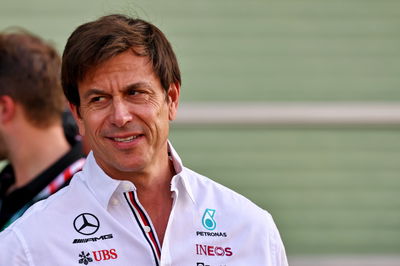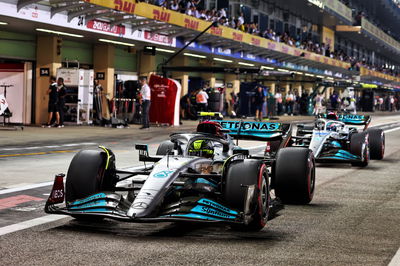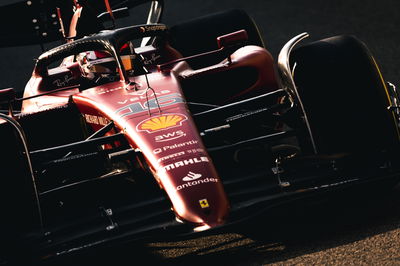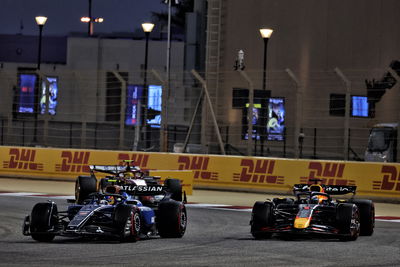Wolff: ‘Stupid pill’ not behind Mercedes’ F1 2022 failure

Mercedes suffered their worst F1 season since 2013 as their streak of eight consecutive constructors’ championships came to an end after getting caught out by the sport’s new era of aerodynamic regulations.
George Russell claimed the team’s only victory in Brazil while teammate Lewis Hamilton failed to win a race for the first time in his career as Mercedes slipped to third in the constructors’ standings, behind Red Bull and Ferrari.
Mercedes spent much of the season trying to fix porpoising and bouncing problems that plagued their car, and had to settle with being the third-fastest team for most of the year.
Asked how Mercedes failed to see the porpoising problem coming while other teams anticipated it, Wolff told the Beyond The Grid podcast: “Because we got it wrong. Even the best people can get it wrong.
"My assumption of why a team would function - that I learned back in the Williams days - is that you have to have the right infrastructure, the financial resource, good drivers, a powerful engine, the right organisation, and enough time to put it all together.
“These ingredients would make sure that you are competitive. Winning can be something else, and winning a championship is a different thing, but we have all of that.
“We haven’t suddenly taken a stupid pill [and gone from] winning the constructors’ championship last December and then in March being nowhere.
“It is very easy - we got the concept wrong. We underestimated the effect when running the car very low and others did a better job.
“Whether they knew the effect from past days or they were simply more focused on this particular area of car behaviour, I don’t know.
“But in the organisation, nobody is shy to say that we have done a bad job here. It is very easy.
“There is no hiding, there is no seeking for an explanation of how we ended up there. All of us are saying that we got this very wrong and others got it very right.”

Wolff admitted Mercedes’ lack of competitiveness in 2022 took some getting used to, despite the team bracing themselves for the inevitable day their run of F1 dominance ended.
“In terms of performance, you can say after eight consecutive constructors’ titles, coming out of the blocks being half a second off – and I’m being rather on the optimistic side – was certainly something you needed to get used to,” Wolff explained.
“We talked about it these last eight years, how we would react if that were to happen – how would we cope with losing? Inevitably we knew that one day it’s going to happen, and here we are.
“I’m particularly proud of the team, how we have recovered through the season, because it wasn’t a one-race blip. It wasn’t that there was a clear trajectory that was going up only; we had good races and then we fell back.
“At the end, I think we’re much closer to our rivals, the front-running cars, than we were at the beginning.”












